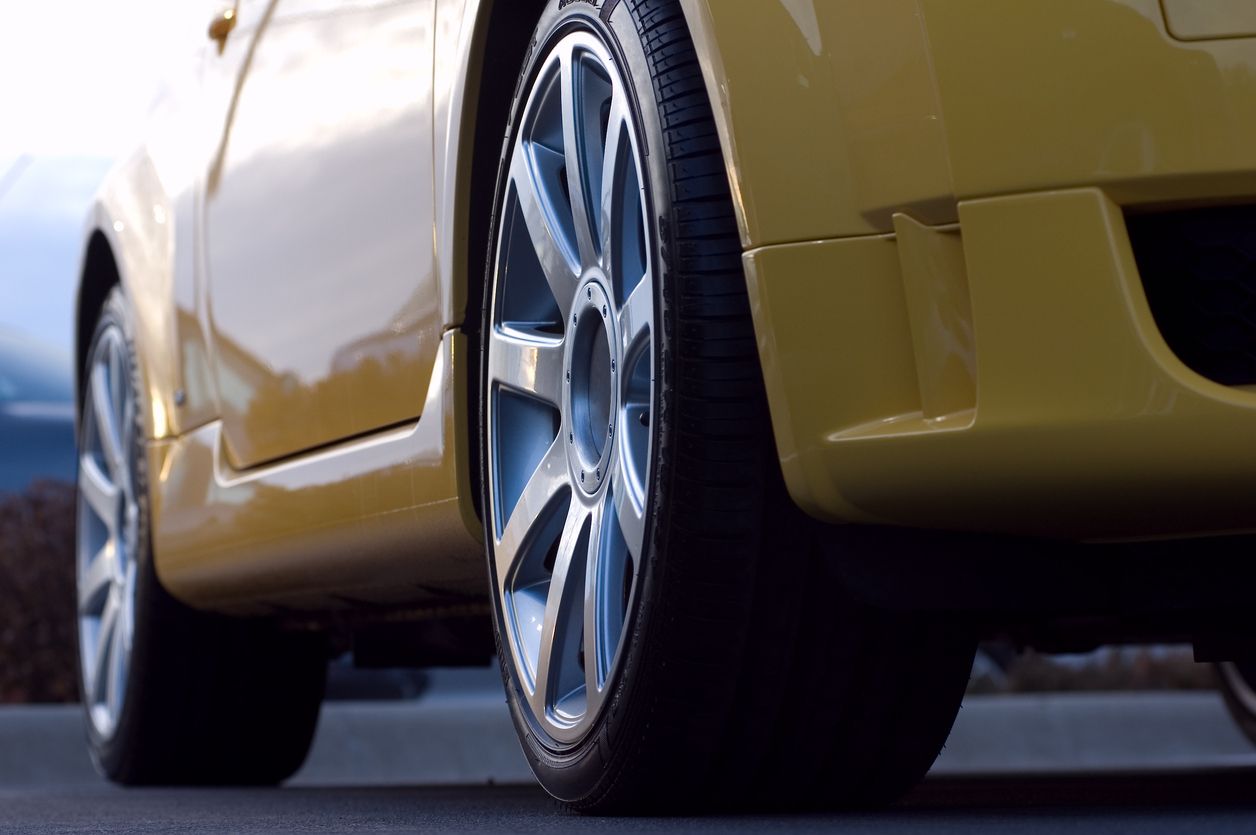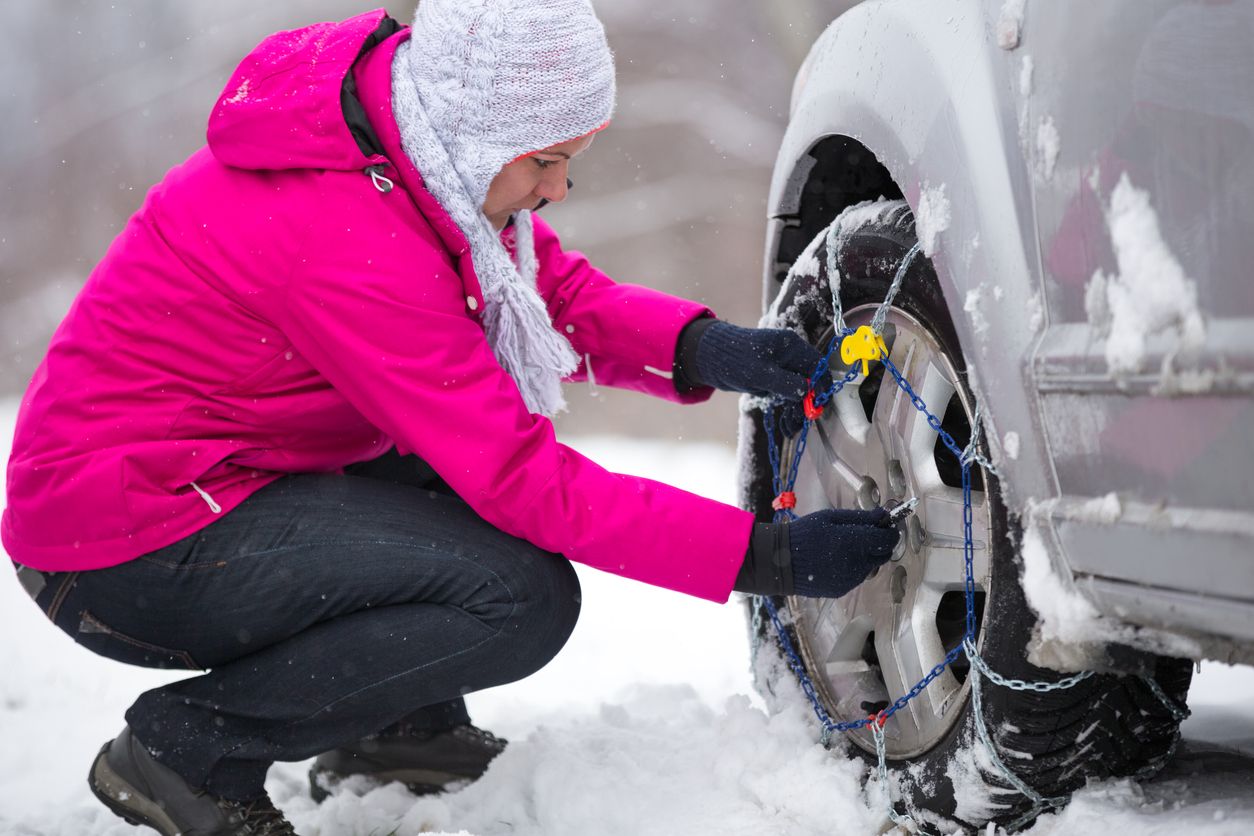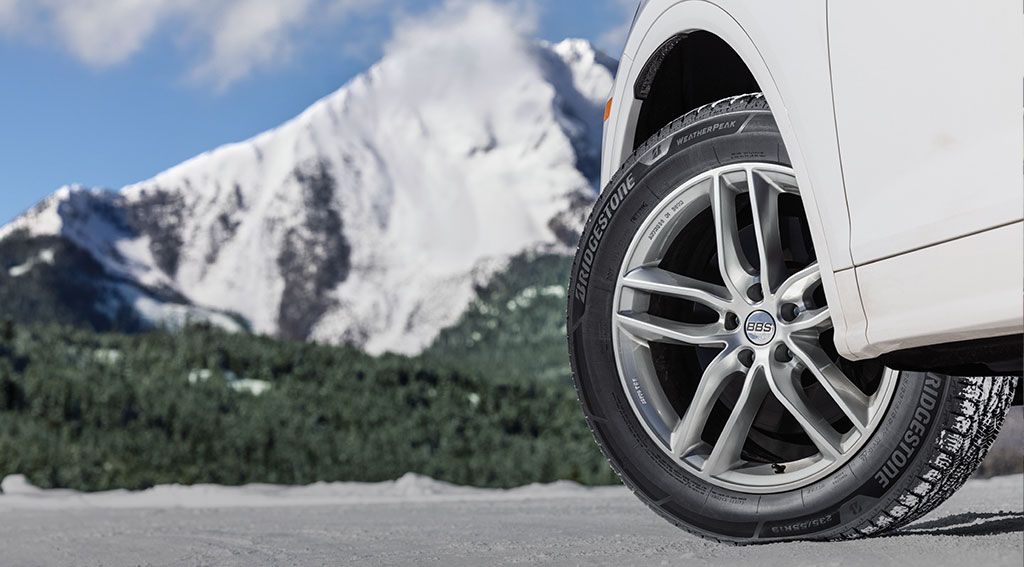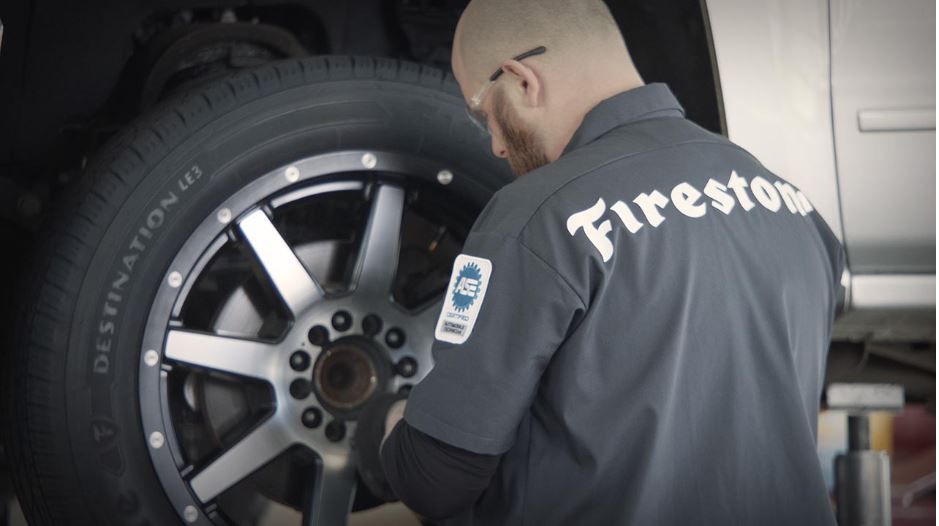You've finally upgraded your vehicle with a brand new set of tires, and you're ready to hit the open road! Only a few miles in, however, and you notice that something doesn't feel right. Did you install the tires yourself? Get help from a neighbor? If your tires weren't installed by a professional, you might run into some issues. Learn about some of the most common post-tire installation problems and how you can get them fixed.
1. ABS Light On After New Tires
Many cars come equipped with four different wheel speed sensors -- one at each tire location. These components monitor your wheel speed and relay that information to your ABS, or anti-lock braking system.
If youre ABS light comes on after installing new tires, it's likely that one or more of these sensors were accidentally damaged or bumped during installation. In which case, i tmay be best to have your vehicle inspected to ensure your wheel speed sensors are still intact.
2. TPMS Light On After New Tires
Do you need to recalibrate or reprogram the TPMS after new tires? The answer is — most likely. Your TPMS, or tire pressure monitoring system, notifies you when your tire pressure is low. While some TPMS sensors are built into the wheel speed sensor and will not need to be recalibrated (if all tires were the same PSI before installation), others will likely need to be reprogrammed by a professional. For safety reasons, it's best to ensure your TPMS is operating properly.
3. Car Shaking After New Tires
If your car wobbles after you've installed your new set of tires, the tires may not have been appropriately balanced when placed on your vehicle. When tire imbalance occurs, there is an uneven distribution of weight on your vehicle's rotating wheels, which can cause vibrations, lead to premature tire wear, and in extreme cases, cause long-term damage to your car's suspension system.
Loose wheels can also cause your vehicle to shake or wobble after installing new tires. Post-installation, wheels should be torqued to manufacturer-recommended levels. If not, you may run the risk of a wheel-off situation down the road.
If your vehicle is wobbling or shaking after you've replaced your old set of tires, we suggest getting them rebalanced and inspected as soon as possible. By resolving this issue quickly, you may help to prevent undue damage to yourself, your car, and your new tires.
4. Car Pulls To The Right After New Tires
Improper Tire Pressure
If your car pulls to one side after getting new tires installed, your first course of action should be to check your tire pressure. Under-inflated or over-inflated tires can affect road grip, fuel economy, tire wear, and can cause your vehicle to pull to one side when driving.
Find your vehicle's recommended tire pressure, and ensure proper inflation. If the PSI is incorrect, inflate your new tiers to the appropriate levels. If you'd rather have them checked bya professional technician, visit your nearest Firestone Complete Auto Care for a free tire pressure check.
Wheel Alignment Issues
Although misalignment can be caused by poor driving conditions, hitting a pothole, or various other factors, car pull after installing new tires can also signal misalignment. Although wheel alignments aren't mandatory when installing new tires, skipping out on the job can have some pretty serious effects.
When your tires are not adequately aligned, your ability to drive efficiently can become compromised. You may even notice uneven tire wear and poor handling. Your best bet after encountering this problem is to have your car realigned by a professional technician as soon as possible.
Get Your Tires Installed Correctly (The First Time) at Firestone Complete Auto Care
Are you experiencing issues with your new tire installation? Visit your local Firestone Complete Auto Care for all of your tire needs. We'll perform a free tire check!
Professional tire installation services at Firestone Complete Auto Care are also backed by our triple promise, meaning your tire installation will be done right the first time, or we'll fix it for free. Leave the heavy lifting to us, and schedule your appointment today!



